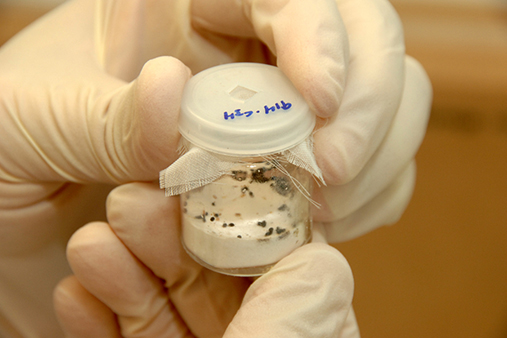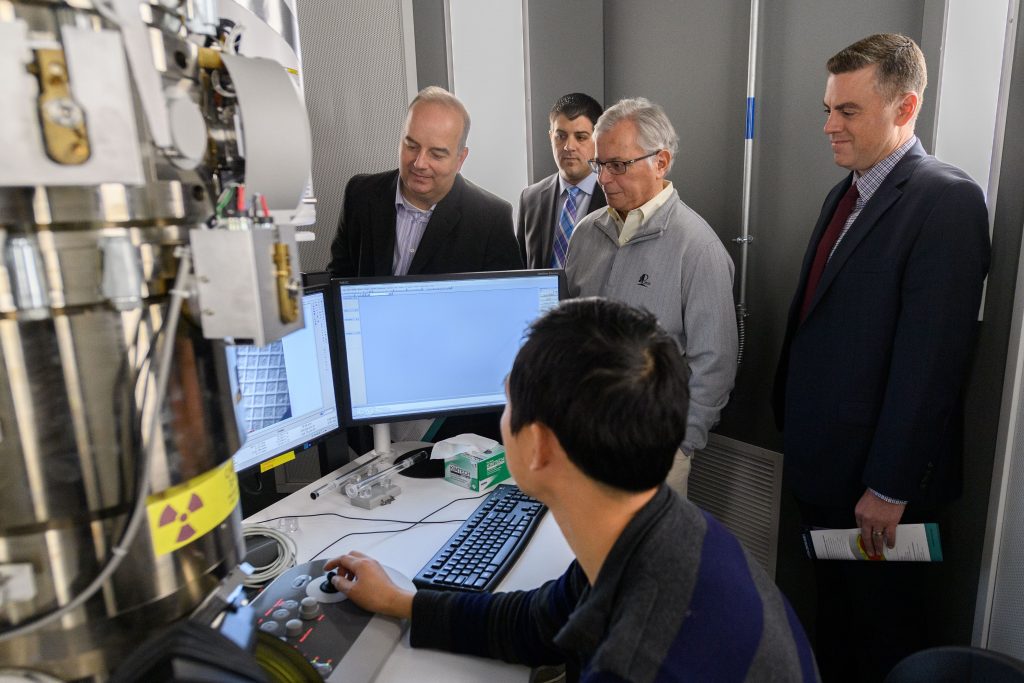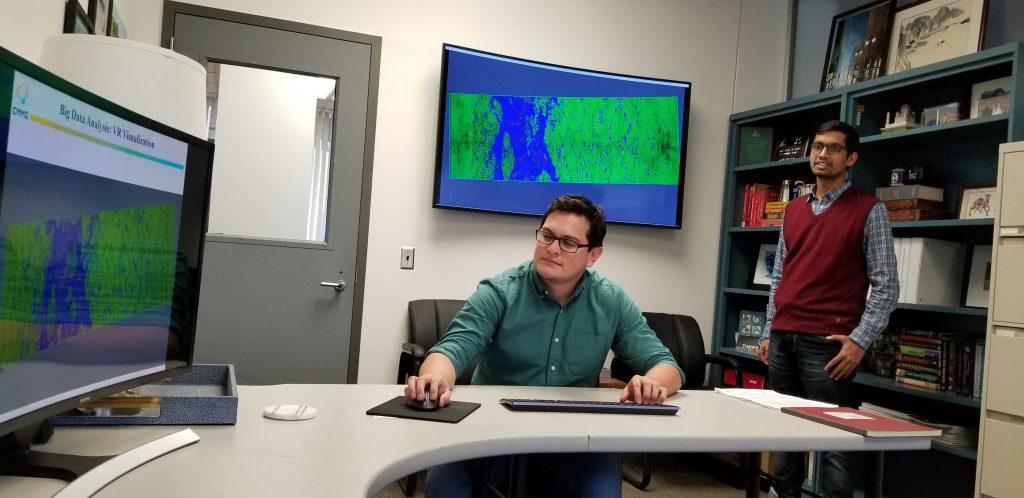
Director, Office of Communications
Jessica McBride, PhD
Dr. Jessica McBride is the Director of the Office of Communications at UConn's College of Agriculture, Health and Natural Resources. She is responsible for developing and implementing communications and marketing strategies to highlight the College's unique research strengths, outstanding academic offerings, and extensive community impact. An alum, Jessica earned her Ph.D. from UConn in 2017.
Author Archive
Meet the Researchers: Spirochete Labs
Anyone who has had to move knows what a pain it is. But imagine not just moving geographically, but switching between completely different biological environments with different nutrients available and immune systems working against you – well that’s the life cycle of Borrelia burgdorferi the bacteria that causes Lyme disease. The most prevalent arthropod-borne infection […]
January 22, 2019 | Anna Zarra Aldrich '20 (CLAS), Office of the Vice President for Research
Meet the Researchers: Spirochete Research Labs
UConn's Spirochete Research Labs are actively studying various aspects of B. burgdorferi, the bacteria behind Lyme disease.
January 22, 2019 | Anna Zarra Aldrich '20 (CLAS), Office of the Vice President for Research
Mechanical/Glass: Design and Fabrication Facility
UConn’s answer to the call for an affordable way to design, manufacture, and repair equipment is the Mechanical/Glass: Design and Fabrication facility, which can save researchers thousands of dollars and keep their projects moving forward.
January 16, 2019 | Carson Stifel ‘21 (CLAS), Office of the Vice President for Research
All in the Family: Parental Influence on Language Acquisition in Children with Autism
Letitia Naigles, a professor of psychological sciences, has received $1.6 million from the National Institute on Deafness and Other Communication Disorders to investigate variation of language usage among school age children with autism spectrum disorder.
January 14, 2019 | Anna Zarra Aldrich '20 (CLAS), Office of the Vice President for Research
UConn Health Startup Wins Patent for Heart and Immune Disease Biologic
Faculty inventor, Annabelle Rodriguez-Oquendo, believes this technology will be another therapeutic option for patients at risk for cardiovascular and immune diseases.
January 10, 2019 | Jessica McBride, PhD
Reviving Holocaust History with Virtual Reality
UConn researchers are developing an immersive learning experience using VR and game design to bring to life archival materials from the Nuremberg Trials.
January 9, 2019 | Jessica McBride, PhD
State Legislators Visit UConn Innovation Partnership Building
Returning and newly elected state legislators met with university officials at the Innovation Partnership Building (IPB) this week to tour the unparalleled facility and to discuss many of UConn’s core research and educational programs.
December 13, 2018 | Melanie Noble, Innovation Partnership Building
UConn Partners in $12.5M DOE Research Center on US Nuclear Security
UConn material scientist, Avinash Dongare, will serve as one of the principal investigators for the Center, which has received $12.5 million over five years.
December 13, 2018 | Jessica McBride, PhD
Envisioning the Invisible: Microplastics in the Long Island Sound
With governmental and non-governmental agencies, UConn scientists from the Center for Environmental Sciences & Engineering have secured financial support from the Long Island Sound Futures Fund to study microplastics along Connecticut's coast.
December 12, 2018 | Jessica McBride, PhD
Disrupting Alzheimer’s Protein BACE
Dr. Riqiang Yan, chair of the UConn Health Department of Neuroscience, has received a competitive renewal grant of $3.2 million from the National Institute on Aging to study a potential treatment that gets to the core of the physiological processes responsible for Alzheimer’s.
December 10, 2018 | Anna Zarra Aldrich '20 (CLAS), Office of the Vice President for Research








